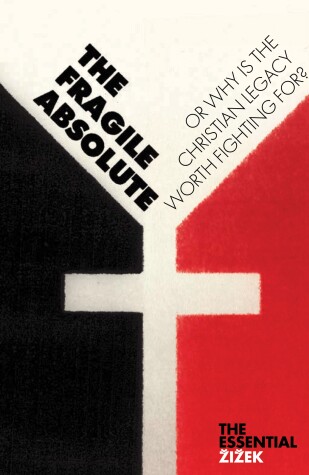Wo es war
3 total works
In order to render the strange logic of dreams, Freud quoted the old 'joke' about the borrowed kettle: 1) I never borrowed a kettle from you, 2) I returned it to you unbroken, 3) the kettle was already broken when I got it from you. Such an enumeration of inconsistent arguments, of course, confirms exactly what it endeavours to deny - that I returned a broken kettle to you...That same inconsistency argues Zizek, characterized the justification of the attack on Iraq whereby Saddam was linked to Al Qaeda against all the evidence, then it was asserted he posed a threat to the whole region, which in turn became a threat to the rest of the world with his weapons of mass destruction. When no significant weapons were found the logic became even more bizarre...Iraq: The Borrowed Kettle analyses the background that such inconsistent argumentation conceals and, simultaneously, cannot help but highlight: what were the actual ideological and political stakes of the attack on Iraq? In iconoclastic Zizekian style, it spares nothing and nobody, neither pathetically impotent pacificism nor hypocritical sympathy with the suffering of the Iraqi people.
One of the signal features of our era is the re-emergence of the 'sacred' in all its different guises, from New Age paganism to the emerging religious sensitivity within cultural and political theory.
The wager of i ek's The Fragile Absolute - published here with a new preface by the author - is that Christianity and Marxism can fight together against the contemporary onslought of vapid spiritualism. The revolutionary core of the Christian legacy is too precious to be left to the fundamentalists.
The wager of i ek's The Fragile Absolute - published here with a new preface by the author - is that Christianity and Marxism can fight together against the contemporary onslought of vapid spiritualism. The revolutionary core of the Christian legacy is too precious to be left to the fundamentalists.
By focusing on the Cartesian subject, this text explores ways in which to reformulate the politics of the Left in the area of global capitalism. In the process, the author touches on the work of prominent thinkers: Heidegger's attempt to overcome subjectivity; the post-Althusserian elaborations of political subjectivity (Ernesto Laclau, Etienne Balibar, Jacques Ranciere and Alain Badiou); deconstructionist feminism (Judith Butler); and the theories of second modernity and risk society (Anthony Giddens, Ulrich Beck).


